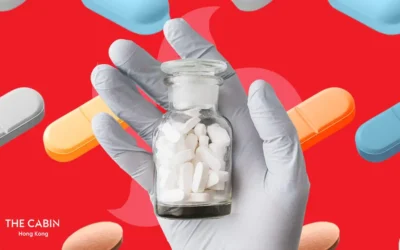When most people form an image of an addict in their mind, they are way off. This is what we call the stigma of addiction, and it can get in the way of successful addiction recovery.

In the eyes of the media, drug users are either celebrities or criminals, which contributes significantly to society’s stigmatisation of addiction. If they are not high-profile celebrities, people with addictions are portrayed and perceived as outcasts in society — poor, uneducated, and immoral.
The fact is, however, that there is no one face of addiction. The disease affects people from all classes, races and age groups, and most people suffering from addiction are functioning members of society — they are parents, employees, neighbours, and friends.
However, once the words “addict” and “alcoholic” are thrown around, people start to look at their neighbours and even family members differently — this is where stigma comes in. Stigma is a negative attitude imposed by society on people it judges as not normal and is often based out of fear, ignorance, and/or prejudice. Lack of education about the true nature of addiction leads to people being labelled as ‘junkies’ rather than labelled as someone suffering from a serious health problem.
What is Addiction Stigma?
Stigma can also be attributes that are deeply discrediting — once associated with the stigma of addiction the person may be seen as a criminal, someone who is flawed, cannot make good choices, and lacks willpower. This social stigma surrounding addiction deepens suffering and can keep many from getting treatment in the first place. For those in addiction recovery, they are fighting not only the disease of addiction, but the stigma associated with it.
There is a false implication that no one can truly move on and recover from drug dependence, which makes the stigma surrounding addiction worse than that of many other mental and physical illnesses. The fear and distrust of people struggling with drug problems is widespread, and unfortunately continues even once people have entered addiction recovery.
The Effects of Addiction Stigma
The effects of stigma in alcohol and drug addiction are discrimination, reluctance to seek help – on the part of the addict, shame and embarrassment, and isolation and exclusion. Employment and stable accommodation are important factors to help people stay sober, yet employers and landlords may withdraw offers when they find people have a history of addiction.
One man describes the difficulty he faced keeping old friends after he completed drug rehab and embraced his addiction recovery. He found that not everyone he loved could understand recovery and many old friends and even his spouse distanced themselves. Luckily for him he found ways to deal with the exclusion and isolation without relapsing.
Due to the social stigma of addiction, many people suffer in silence. They miss opportunities for treatment and their road to addiction recovery can be prolonged because they are scared to admit they have a problem, and scared of how people will react if they do reach out for help . The stigma is very real and so ingrained in society that addicts, especially high-functioning addicts, fear that revealing they have an addiction will cause them more pain and suffering than continuing to live a lie hiding and denying their substance abuse problem.
How to Overcome Stigma in Addiction Recovery
Given the weight of society’s stigma of addiction, in order to be successful in addiction recovery one must overcome these negative assumptions. Of course this is easier said than done. The first step is admitting that you need help and getting yourself into drug or alcohol rehab. Unfortunately, stigma keeps many from taking this first step until they have hit complete rock bottom and have no choice but to admit and face their addiction.
After rehab, staying sober requires lifelong commitment and a major lifestyle change. Unfortunately, the stigma of addiction makes this more difficult, and many addicts will begin to think of themselves as weak and less deserving than other people. If you hold on to internalised stigmas they will surely eat away at you until you relapse.
Instead, you can follow these tips so that you may personally rise above the stigma to achieve lifelong addiction recovery.
Acceptance.
By first accepting within yourself that you have a disease that is chronic yet treatable, you can begin to build the personal strength needed for recovery. No one uses drugs and alcohol with the intention of becoming addicted. Accept that addiction is not your fault, it is not a moral failing, and does not make you a bad person, even if you have made poor choices. Addiction recovery is possible, and acceptance is one of the first steps to get you there.
Attend a recovery group.
You are not alone, and attending an addiction recovery group will help you see this. The support of other group members can go a long way in helping you rise above the stigma. You will get to know other people in recovery who are also seemingly “normal,” and have families, careers, and friends, which will help you overcome any self-stigmatisation. For many, the group fellowship with other people in recovery is irreplaceable in helping one overcome the barriers to success.
Educate yourself.
Educate yourself about the nature of addiction. Most people who attend an addiction treatment centre find that education about their disease is empowering. Once you learn about addiction as a brain disease and the underlying mechanisms that cause compulsive drug seeking and taking, you will be better equipped to face and overcome the societal misperceptions about addiction.
Speak out.
By speaking out you can help change the face of addiction. You can help people see the reality of addiction by educating others about the disease, and letting the world see that the stereotypes of people suffering from addiction are actually the exception rather than the rule. Speaking up will help you gain confidence in your recovery and spark confidence in others to also overcome stigma and seek help.
Everyone has an idea in their head about what addiction looks like, but not enough people understand what addiction recovery looks like. Be the face of recovery. Show others that it is possible to recover from addiction and lead a full life.
In addiction recovery, if you can react to stigmatisation with confidence in your recovery, and with people by your side who share your values and understand your story, then you are on the way to not only overcoming your own self-stigmatisation, but helping to make a change for the better within society.


